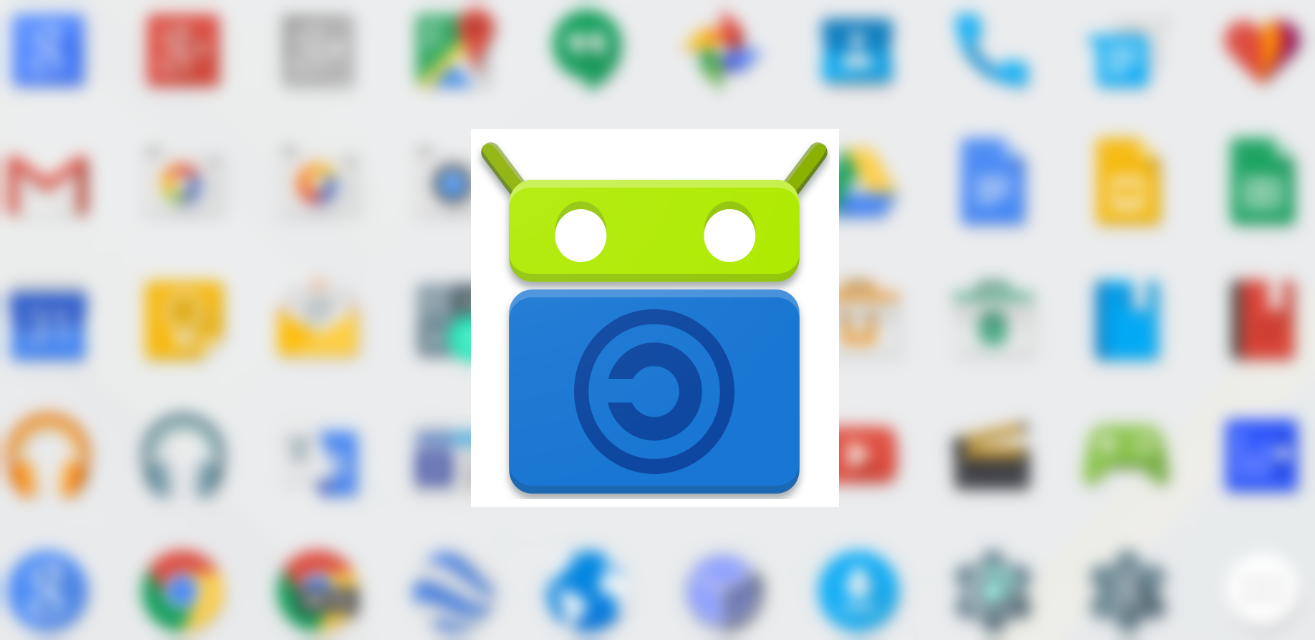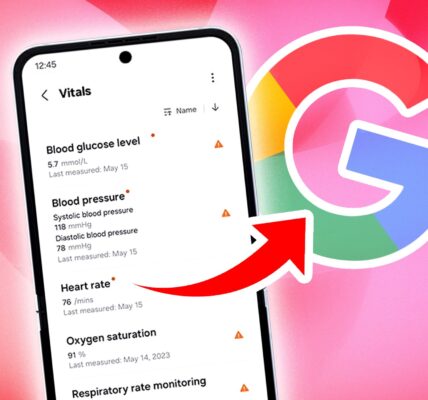There’s more than one way to interact with your favorite app. Websites came first, but mobile apps exploded as smartphones proliferated. And though the always reliable Google Chrome produces the same service you see when logged into the Facebook app, they take vastly different routes.
Those pathways to online activities follow maps called application programming interfaces. APIs define how two pieces of software communicate, like Strava telling your favorite personal planner app you just finished a workout, or Android telling bank software your fingerprint matches what it has stored.
APIs have existed since the dawn of software, but multiplied exponentially when the internet went mainstream. Facebook and Twitter developed bespoke APIs in the early 2000s to manage how third parties interacted with data, letting developers choose how to track the service and parse user activity for storage, research, custom front-end development, and more. But API access has changed considerably over the last several years, and not necessarily to users’ benefit.
Related
Lawnchair’s core team shares the rollercoaster ride of maintaining an open-source app
From passion project to a bastion of the launcher scene
Open API access and data transparency
How early philosophies shaped the app experience
Source: Android Police
Early services mostly gravitated toward free API access. Early user-focused outlets like social media didn’t provide the most in-depth information possible. At first, Facebook only let users share basic profile information, like friends lists, with other websites. Merely a website when Web 2.0 started materializing, Twitter played a pivotal role in the overall birth of mobile apps when it opened its API in 2006, partly because of the specialized tools it released at the time.
An independent programmer used Twitter’s toolkit to write Tweetie, which eventually became the microblogging platform’s first official app. Google engineers practiced on the Twitter and Google Maps APIs, establishing early best practices and paving the way for modern Android’s rich, accessible development process. Big G programmers even coded Twitter’s first Android interface.

Related
Love it or hate it, X (Twitter) just turned old enough to vote
Remember when you had to send a text message to tweet?
More than simply consumer-focused interfaces
Facebook turned a corner in 2010 by allowing public data access at a scope never before seen, enabling integration with other software and entirely different companies. The following years saw armies of independent coders designing custom software and taking strain off companies’ in-house teams.
Grassroots efforts inspired more than just unique interfaces with helpful, user-friendly features. Open APIs grant academic researchers a wealth and variety of complex, cross-demographic data they’d never imagined. Unprecedented collections of information led to insight into behavioral patterns, organizational techniques, and more psychological and logistical topics than most people realize.
Relatively open, conveniently managed access to popular services’ resources shaped the open internet as we know it today. But behind the scenes, a disaster was evolving that would underscore a major open API pitfall and ultimately force some important ones out of existence.
When it all came crashing down
Source: Android Police
The end of APIs’ golden age began on March 17, 2018, with joint publications in The Guardian and The New York Times.
Journalists had tracked Cambridge Analytica’s suspicious data gathering since late 2015, only learning of its unethical actions over two years later. Public outrage, government investigations, and worldwide political fallout exposed the hazards of unfettered API access. The centralized, user experience-focused Web 2.0 suddenly began its slide into history, well after juggernauts like Google and Amazon had established dominance.
The API environment hadn’t been perfectly free and open until then, with services periodically removing tools and adding restrictions. But Facebook turning off the data firehose in 2018 marked the end of an era. The world’s biggest online gathering spaces continued shuttering public APIs. Even Instagram stunned developers by announcing its API’s upcoming closure at the end of 2024.
Accessibility and the end of open access
Causes and effects of locking out third-party developers
Source: Pexels
History offers a critical perspective on open APIs’ contributions to today’s mobile sphere. A general lack of restrictions on third-party software talking with managed servers laid the groundwork for the first apps, and countless software suites offer open or partially open, hybrid APIs today. Virtually every piece of software is accompanied by an internal API for use only by developers.
But APIs have consistently trended away from openness since 2010. Most recently, popular exercise tracker Strava stopped sharing fitness data with a host of intertwined health- and lifestyle-improving tools, citing privacy, AI scraping, and minimal impact. You might remember when Twitter unceremoniously booted third-party clients in similar fashion.
Arguably, the most storied public API shutdown came as May 2023 ended. Then-privately owned social media network Reddit instituted massive fees that stopped most third-party apps in their tracks. As a 2021 IPO filing inched toward fruition, rumors swirled of Reddit locking down data and interfaces to build investment appeal. The terminally online section of the public would soon see real-world results of API restrictions.
Prohibitively high fees alienated programmers responsible for mitigating Reddit’s scarcely updated interface. The network’s open design and mostly unrestrained standards suffered from mandating the official app’s use. Fear of hamstrung community management features, reduced accessibility for users with impaired sight or vision, weakened anti-abuse moderator tools, and less overall control of user-generated content signaled Reddit’s transition from its cherished, user-guided operation. The same can happen on smaller platforms.

Related
Reddit blackout explained: Why subreddits have gone dark
Redditors are protesting management decisions that effectively kill third-party apps
The pros of restricting API access
Some good reasons, and also money
Source: Pixabay
Reddit’s decision led to clear examples of a restricted API’s benefits. Funneling users through official apps provides more consistent metrics for infrastructure readiness, while corporate content oversight ensures a family-friendly environment. Lower reliance on outside developers improves control over features and interfaces, cutting the likelihood of bugs, incompatibility, and other platform growth-limiting experiences.
Critically, fewer strangers poking around your system slashes the probability of API breaches that leak user data, threaten security, and cost IT departments billions. Even moderate rate limits, which reduce API access without eliminating it, can disable annoying, offensive, or dangerous bots and low-profile, unscrupulous data scrapers.
Reddit struck data harvesting agreements totaling somewhere in the hundreds of millions of dollars per year from well-funded tech giants and startups. Its especially noteworthy Google deal included not only rumored payments up to hundreds of millions of dollars per year, but also reported restructuring of Google’s search and advertising models to drive the anti-social media platform’s visibility. Its partnerships at least enabled a roughly 30 million increase in daily active users. Reddit’s an extreme case, but strict API management can lock down revenue streams.

Related
Don’t let Reddit monetize your knowledge just so Google can train its AI
Let’s take our content back to send a message
Reddit’s teachings on collaboration and added value
When users have access to a service’s API, especially in the social media realm, individuals step up to deliver an easily navigable, fun, educational experience. Shunning eager coders impacts innovation and puts an end to the most specialized features. A subpar interface devoid of refined apps can send power users, lurking experts, and average folks fleeing. Blocking available data slows the font of scholarly research it would otherwise champion.
In Reddit’s case, disrespecting users and seemingly chasing huge payouts drove away many notable contributors, decreasing user diversity and expert contributions. Excising countless volunteers (whether developers or moderators) demands a platform pour resources into community management and interface development.
Google’s open preference for Reddit raises concerns about how easily product and travel marketing agencies could artificially influence consumers in various settings. Alarmingly, Google’s September 2023 Helpful Content Update that devastated traffic to independent sites corresponded with a sharp rise in Reddit traffic, highlighting what happens when platforms move away from individual entrepreneurs and side with industry leaders.
Some users claim the infamous API protests caused no lasting damage. But those who spent considerable time there before 2023 recognize that excluding driven third-party developers clearly hurt the platform.

Related
The 4 best Reddit alternatives: Top picks to replace your subreddits
Build your communities elsewhere now that most Reddit third-party clients are dead
The examples don’t stop there
Source: atprotodart.com
The Firehose API is just one transparent part of the AT Protocol driving open source social media.
Beyond social media, open APIs helped inspire the original boom in app development, and contribute to training and education to this day. The Spotify API once served as a go-to for countless students in need of a beginner-friendly framework with a real-life application for their up-and-coming skills. Spotify blocked several powerful analysis tools from public access on November 27, 2024, all but ending its run as a leading boot camp portfolio project.
Preventing users from tailoring services to their needs hurts organic interaction and gives more power to algorithms that don’t prioritize the public’s best interests. API closures killed Strava’s wellness ecosystem, made Instagram photos harder to search through, and erased a long-standing educational resource.
Everything changes, and Web 2.0’s user-driven ethos will diminish, but services can still benefit from putting consumers first and allowing ambitious users to improve software for everyone.
The future of public-facing APIs
It’s not all bad, and royalty-free software exists
Source: BlueSky
Bluesky is one of a few open source, open API social media platforms.
Often, companies shut down APIs because they’re obsolete and don’t take full advantage of the service anymore. But non-controversial fixes and restrictions don’t get much press. Companies have decided to axe public access on many occasions for reasons that make perfect sense. These are just a few.
But there are plenty of success stories, and a well-engineered API establishes good developer rapport. Relatively new social media platforms like Threads, Mastodon, and Bluesky all offer open APIs and, therefore, plenty of ways to design your own experience.
If you’re looking to practice designing your own software, finding free, open APIs is easy. Open APIs sit at the heart of some cutting-edge mobile banking efforts, which can simplify working with secure client data while requiring minimal IT overhead.

Related
5 open source alternatives to Google apps
Escape the Google comfort zone with these open source gems
Looking to the future, the development industry is more aware than ever of the need for transparency and control over data and software. Industry working group TM Forum spearheads the Open API Project in constant preparation for the future.
Even Google has always been a champion of open source software, and a variety of talented teams maintain open source Google app alternatives, too. And for dedicated fans of Strava who need something else to integrate their workouts, there are plenty of other great exercise tracking apps to choose from.










